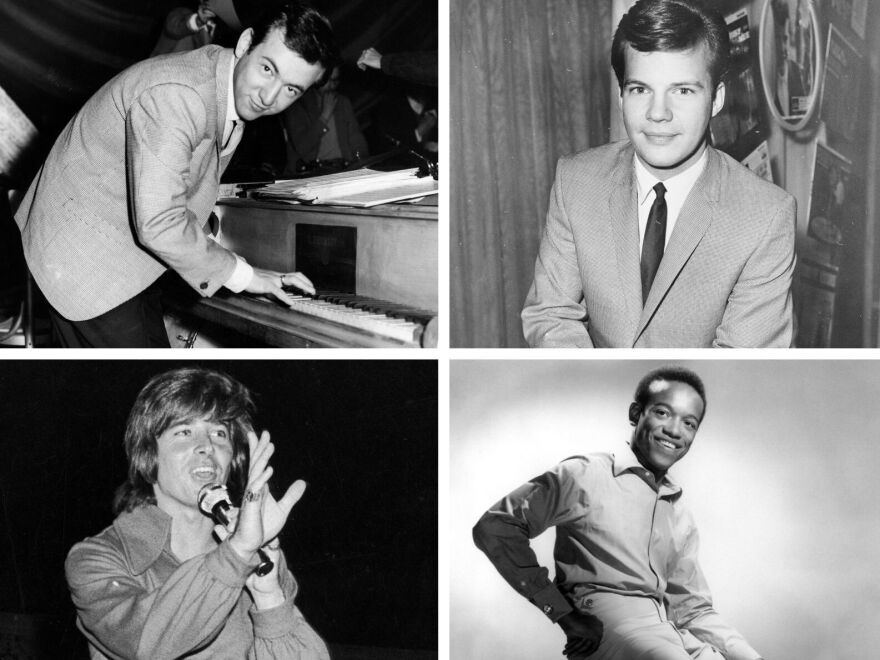I have been known as Bob for a long time. However, I was Bobby in the 1950s and early 1960s.
And you know how young children go through a phase where they believe they are the center of the universe?
Well, I had some evidence back then.
Every time I switched on the radio, Marcie Blane appeared to be singing about wanting to be “Bobby’s Girl.” She wasn’t by herself, either. Phil Spector’s well-known “wall of sound” was being used by Darlene Love to announce her next song, “Wait ’til My Bobby Gets Home.” In “Run Bobby Run,” Lesley Gore warned me about another female who was trying to trick me.
And it seemed that they would all have to battle the stronger Etta James, who was sobbing heartily about her one true love in “Bobby Is His Name.”
It’s possible for a child to develop a complex.
Fortunately for my mental health, I was already too old to believe that any of this was genuinely aimed at me. Prior to the arrival of British artists John, Paul, George, and Ringo, American Bobbys were dominating the charts. In 1958, Bobby Day achieved this feat with “Rockin’ Robin” and its B-side “Over and Over,” and in the same year, Bobby Darin did the same with “Splish Splash.”
And soon there were Bobbys everywhere.
“The Night Has a Thousand Eyes,” “Take Good Care of My Baby,” and the song where he hiccupped like a “Rubber Ball, I’ll come bouncin’ back to you-ooh-ooh-hoo-ooh” were among Bobby Vee’s six top ten Billboard successes in the 1960s.
Bobby Vinton, who had eight top 10 singles in the 1960s, including so many blue-themed songs like “Blue Velvet” and “Blue on Blue,” swiftly overtook Bobby Vee, or perhaps even overtook him. If you had asked me who sang “the blues” at the time, I could have responded Bobby Vinton.
Another was Bobby Rydell, who used a number of his top ten singles (such as “Volare,” “Forget Him,” and “Wild One”) to land an acting role in the musical Bye Bye Birdie as Hugo, Ann-Margret’s boyfriend (though he seldom sang in it). And in the soul charts, you’ll find Bobby Smith of the Spinners, Bobby Womack (“I’m Lookin’ for a Love”), Bobby Lewis (“Tossin’ and Turnin'”), and Bobby Freeman (“Do You Want to Dance”). Among the country Bobbys were Bobby Sherman (“Little Woman”), Bobby Bare (“Detroit City”), and Bobby Goldsboro (“Tears of a Clown”).
Even though the most of these Bobbys weren’t in their teens, they were all adolescent idols. The only people who liked them were bobby-soxers, who used bobby-pins to secure their hair. You have to assume that some of the singer Bobbys couldn’t have had careers before microphones because of their thin, adenoidal voices. They were very different. A popular breed.
Since there were a lot of Bobbys in the past, it makes reasonable that there would have been a lot of vocalists with that name when I was growing up.Robert was the most popular boy’s name in the United States in the 1930s. It was also the second most popular in the 1940s. (For comparison, it hardly ranks in the top hundred these days.) Therefore, naming their young, soon-to-be crooners that was nothing out of the ordinary for parents from the Greatest Generation, such as the Darins, Rydells, Vintons, Vees, Goldsboros, Womacks, and Shermans. If there hadn’t been so many teenybopper Bobbys in the 1960s, it would almost seem odd.
By 1970, however, their days were largely over. I was okay with that. I had personally advanced to Bob by that point and was more likely to be listening to Bob Seger or Dylan. Or perhaps to that “Splish Splash” Bobby Darin, who had transformed into a more refined artist, discovering jazz and eschewing the teenybopper era with hits like “Mack the Knife.”
I was a theater enthusiast enough to recognize that specific tune from The Threepenny Opera, an off-Broadway production. Since I was a child, I had been attending touring performances in Washington, D.C.; they were now my favorite music, and in 1970, I finally made the trip to New York to see my first Broadway musical without my parents.
I felt extremely mature as I settled into my seat at the Alvin Theater.
What were the original lyrics of Stephen Sondheim’s Company when it first began?
“Bobby, Bobby. “Robby, Robert darling, Bobby baby, Bobby bubbi.”
Clare Lombardo modified this article. Robert Rodriguez provided engineering support while Chloee Weiner mixed the broadcast version.
Copyright 2025 NPR






